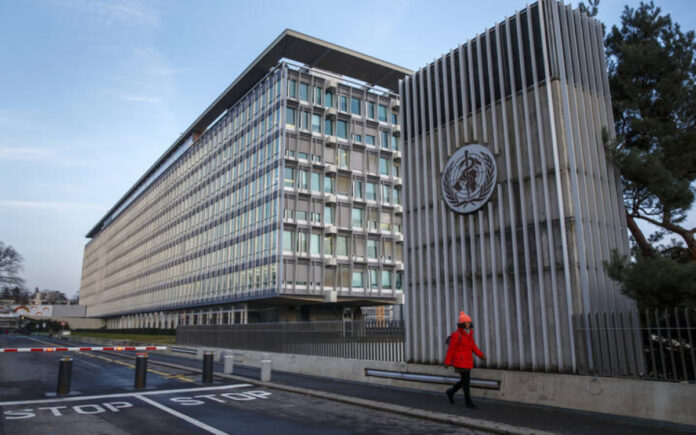Geneva: World Health Organization (WHO) member states are nearing a landmark agreement on a global treaty aimed at strengthening preparedness and response for future pandemics, according to sources involved in the negotiations. The talks, which have spanned three years, have now been paused until Tuesday, a WHO spokesperson confirmed.
The proposed treaty—designed to be legally binding—seeks to fortify global defenses against future outbreaks, building on the painful lessons learned from the COVID-19 pandemic, which claimed millions of lives between 2020 and 2022.
Negotiations in Geneva continued through the night and extended until 9 a.m. on Saturday. One participant told Reuters, “They went overnight until 9 a.m. (Saturday) but didn’t manage to resolve the final issues.” Another diplomatic source noted, “Big advancement was made … almost all the treaty was agreed upon with few outstanding yet crucial issues.”
Although previous rounds of negotiations missed key deadlines—including one last year—progress in recent days has raised hopes for a final agreement. The co-chair of the negotiating body had earlier told AFP that the parties had reached an agreement “in principle.”
The accord would be only the second treaty ever agreed upon in the WHO’s 75-year history, following the 2003 Framework Convention on Tobacco Control. If finalized, this new treaty would mark a major milestone in global health governance.
However, not all WHO members remain engaged in the process. The United States, initially slow to participate in the early stages of negotiation, formally withdrew from the talks earlier this year. President Donald Trump signed an executive order in February pulling the U.S. out of the WHO and banning further involvement in the discussions.
The remaining 192 WHO member states are expected to decide individually whether or not to ratify the agreement once it is formally adopted.
A persistent sticking point in the negotiations involves equitable access to vaccines, treatments, and other critical resources. The divide between wealthier nations and developing countries has stirred deep debate, with many seeking safeguards to ensure more equitable distribution during future health emergencies.
Also Read | Smartphones and Computers Spared from Trump’s 125% Reciprocal Tariffs
The discussions have also faced criticism from right-wing commentators in the United States, United Kingdom, and Australia, who claim the treaty could compromise national sovereignty by granting excessive authority to a United Nations agency. WHO Director-General Tedros Adhanom Ghebreyesus has firmly rejected these assertions, insisting that the accord aims to enhance—not replace—countries’ abilities to manage health crises. “The accord would help countries better guard against pandemic outbreaks,” he stated.
In Geneva, opposition to the treaty was visible as a small group of protesters demonstrated outside the talks. One protester held a sign depicting a fanged snake emerging from the WHO emblem with the slogan: “WHO ARE YOU TO TAKE AWAY MY FREEDOMS?!”
If finalized, the treaty would not only symbolize a collective global response to the failures of the COVID-19 era but also mark a significant victory for the WHO’s mission of strengthening international public health cooperation.



